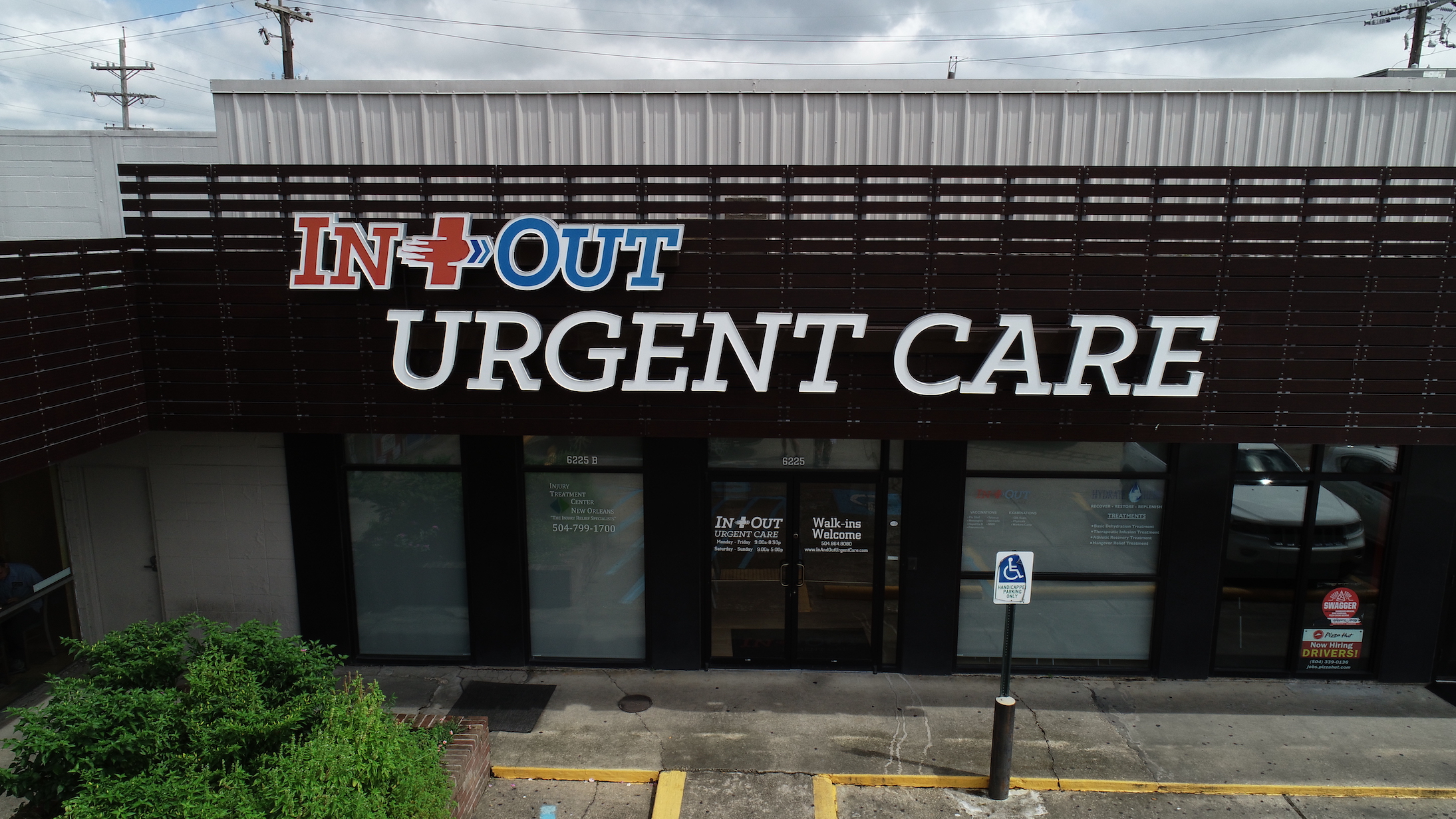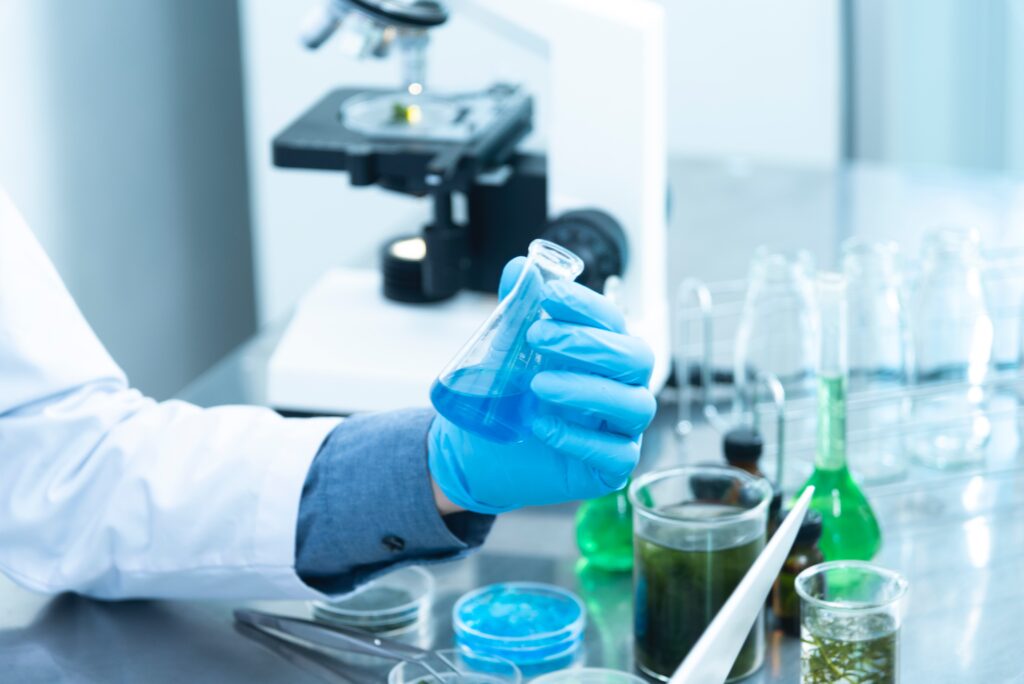Urgent Care at In and Out Urgent Care in New Orleans, LA
Our Suite of In-House Diagnostics
On-Site Laboratory Diagnostic Services:
At In & Out Urgent Care Clinic – Metairie, our in-house lab tests involve performing diagnostic analyses within our own facility, negating the need to send samples to an outside lab. The advantage of this approach is the faster delivery of results, which expedites diagnosis and treatment. Our array of in-house tests include, but are not limited to, blood tests, urine tests, and rapid strep tests.
Blood Analysis:
Blood tests are indispensable diagnostic tools that enable us to detect and monitor a myriad of health conditions. These tests can identify various diseases such as heart disease, diabetes, cancer, HIV/AIDS, anemia, and COVID-19. In addition, they can monitor the functioning of vital organs like the heart, liver, kidneys, and thyroid. Blood tests typically involve the collection of a blood sample from a vein, most often found on the inside of the elbow or the back of the hand.
Urine Examination:
Urine tests, also referred to as urinalysis, are utilized to diagnose and monitor a diverse array of conditions, including urinary tract infections, kidney disease, and diabetes. A standard urinalysis may involve assessing the color, clarity, and concentration of the urine, inspecting the urine under a microscope for bacteria or other microorganisms, and carrying out a chemical analysis to check for specific substances.
X-Ray Imaging:
X-rays are a common imaging test that employs minimal amounts of radiation to capture images of the body’s internal structures. They are routinely used to diagnose fractures, tumors, infections, blockages, lung conditions such as pneumonia, and dental issues. X-rays operate by directing controlled amounts of radiation through the body, with different tissues absorbing these rays at varying rates, facilitating image generation.
Electrocardiography (EKGs):
An electrocardiogram, commonly abbreviated as EKG or ECG, is a procedure that records the electrical activity of the heart. This test is primarily used to detect heart disease, arrhythmias, and other heart-related issues. During the procedure, electrodes are attached to the skin of the chest and limbs. These electrodes measure the small electrical changes on the skin that are caused by the heart muscle’s electrophysiologic pattern of depolarizing and repolarizing with each heartbeat.
Ultrasound Scanning:
Ultrasounds, also known as sonograms, are imaging tests that utilize high-frequency sound waves to create images of the body’s internal structures. While they are well-known for their use in monitoring fetal development during pregnancy, ultrasounds are also used to examine organs such as the heart, kidneys, liver, and gallbladder. As a non-invasive procedure that does not involve radiation, ultrasounds are safe for various applications.
Additional Lab Testing Services
Strep Throat Detection:
We provide tests for diagnosing strep throat, an infection caused by group A Streptococcus bacteria. The most prevalent test is a rapid antigen test, which requires a throat swab and tests the sample for antigens related to the bacteria. Results from this test can often be obtained in minutes. If this test is negative but strep throat is suspected, a throat culture may be carried out, which involves growing bacteria from the swab over several days.
Lyme Disease Screening:
We offer testing for Lyme disease, a condition caused by the Borrelia burgdorferi bacteria transmitted through the bites of infected ticks. The most frequently used tests are the ELISA, which detects antibodies to the bacteria, and the Western blot test, usually employed to confirm a positive ELISA test. These tests provide the most accurate results a few weeks after a suspected infection, as the body requires time to produce antibodies.
Mononucleosis Testing:
Mononucleosis, also referred to as “mono”, is typically caused by the Epstein-Barr virus (EBV). The monospot test is the most common method used for detecting mononucleosis, looking for antibodies that react to the virus. This test can usually identify antibodies two to nine weeks after infection. If the monospot test is negative but mono is still suspected, a more specific antibody test can be administered.
HIV Screening:
We provide HIV tests to detect the HIV virus, which leads to AIDS. There are several HIV tests available, including antigen/antibody tests, antibody tests, and nucleic acid tests (NATs). Antigen/antibody tests search for both HIV antibodies and antigens, particularly the p24 antigen that is produced during the early stages of HIV infection. Antibody tests only search for HIV antibodies and may require more time post-exposure to accurately detect the virus. NATs, although more costly, can identify the virus in the blood within 1 to 4 weeks of infection.
COVID-19 Testing:
We offer testing for COVID-19, designed to detect the SARS-CoV-2 virus. There are two primary types of tests: viral tests and antibody tests. Viral tests, which include the PCR test and the rapid antigen test, identify the presence of the virus in respiratory samples and can confirm if a person is currently infected. Antibody tests detect antibodies produced in response to the virus, indicating a past infection. Please note that antibody tests are not used to diagnose active infections, as it takes time for antibodies to develop.
Our Process and What to Expect
Arriving at Our Clinic:
When you arrive at In & Out Urgent Care Clinic – Metairie, a member of our staff will warmly greet you and assist with the check-in process. This includes verifying your personal information, health insurance details, and reason for your visit, ensuring that we have all the necessary information to provide optimal care.
Consultation with a Medical Provider:
After checking in, you’ll consult with one of our healthcare providers. Depending on your needs and our staffing, this could be a doctor, a nurse practitioner, or a physician’s assistant. They will discuss your symptoms, review your medical history, and if necessary, order lab tests to collect further information about your health.
On-Site Lab Testing:
Once your medical provider orders lab tests, our dedicated laboratory staff will perform these in our advanced in-house lab. This may involve drawing a blood sample, taking a urine sample, a throat swab, or collecting other necessary samples. Our on-site lab enables rapid processing and analysis of these tests, often within a few hours, ensuring swift diagnosis and treatment.
Discussion of Results and Treatment Plan:
As soon as your lab results are ready, you’ll have a follow-up consultation with the medical provider. They will explain the results, helping you understand their implications for your health. If a diagnosis has been made based on the test results, they will discuss potential treatment options with you. Together, you will work on developing a personalized treatment plan, which may include medications, lifestyle modifications, further tests, or a referral to a specialist. Our goal is to keep you well-informed about your condition and ensure you feel comfortable with the proposed treatment plan.


